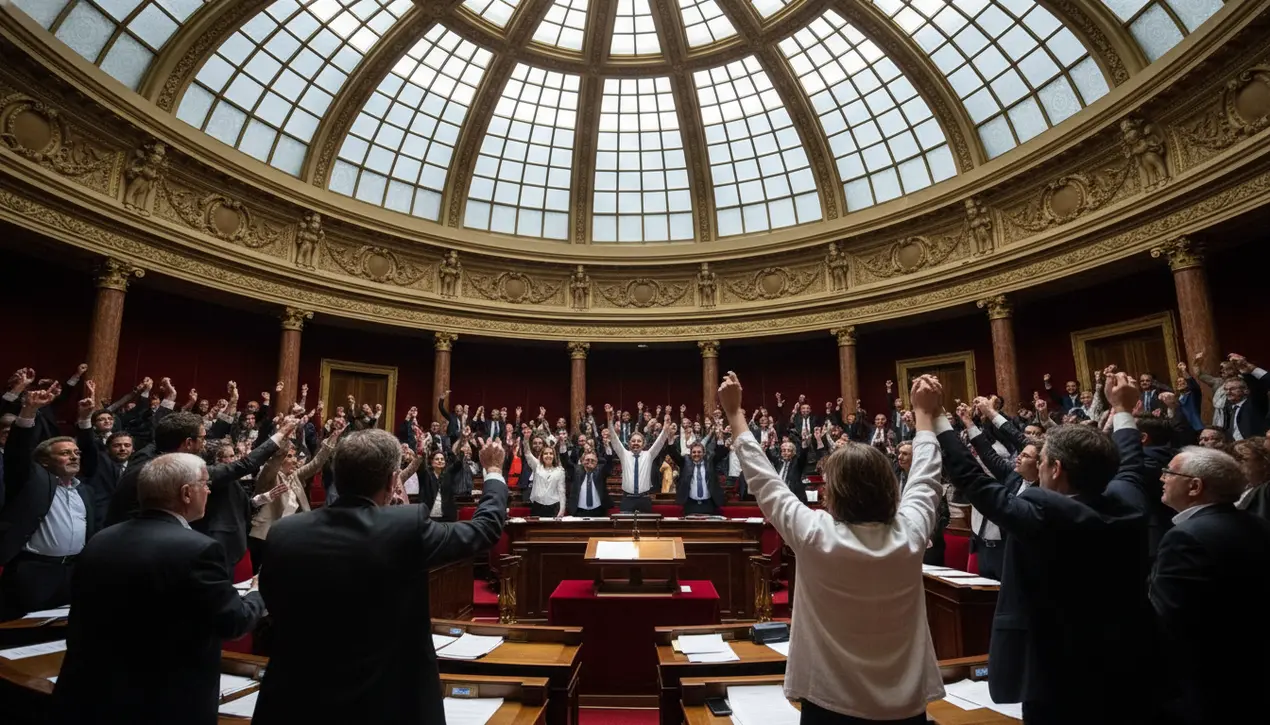
Politicsgovernments & cabinetsGovernment Formations
France's National Assembly Votes to Suspend Pension Reform
RO
Robert Hayes
4 hours ago7 min read5 comments
The National Assembly of France has cast a decisive vote to suspend the deeply contentious pension reform, a move that resonates with the gravity of a parliamentary coup de théâtre and sends shockwaves through the corridors of European power. This is not merely a domestic political skirmish; it is a strategic gambit with profound implications for the continent's economic stability, echoing historical moments when French social policy has collided headlong with fiscal reality.The reform, which sought to raise the retirement age from 62 to 64, was the centerpiece of President Emmanuel Macron’s second-term agenda, a testament to his long-held vision of a more competitive, supply-side France. Its suspension, therefore, represents a staggering political defeat, a forced retreat in the face of relentless strikes and public fury that have periodically brought the nation to a standstill, reminiscent of the grassroots upheavals that have toppled French governments of the past.Our European partners, particularly the fiscally hawkish nations of the northern bloc, are watching this turmoil with a mixture of alarm and grim validation. France's budget deficit, now ballooning to an estimated 5.5% of GDP—the largest in the eurozone—hangs over these deliberations like the sword of Damocles. The suspension of a reform explicitly designed to shore up the pension system's finances is a signal that Paris may be retreating from its commitments to fiscal discipline, raising existential questions about its ability to serve as a reliable anchor for the single currency.This scenario invites a historical parallel to the political crises that have periodically shaken the European project, where French domestic tumult has forced a recalibration of continental ambitions. The European Commission, already engaged in an excessive deficit procedure against France, now faces a partner seemingly unwilling to administer the necessary, if bitter, medicine.The consequences are manifold: a potential widening of the yield spread between French and German bonds, increased pressure on the European Central Bank as it navigates inflation, and a fundamental weakening of the Franco-German engine that has driven EU integration for decades. Expert commentary from Brussels suggests a growing frustration, a sense that France's political paralysis is becoming a systemic risk.The suspension does not kill the reform, but it places it in a state of profound limbo, a political frozen conflict that saps investor confidence and dims the economic outlook. In the grand chessboard of European politics, this vote is more than a policy reversal; it is a declaration that the social contract in France remains sacrosanct, even at the potential cost of its fiscal credibility and its standing among its peers. The road ahead is fraught with uncertainty, promising further political battles and testing the very resilience of the eurozone's second-largest economy.
#France
#pension reform
#protests
#budget deficit
#euro zone
#government
#legislation
#featured
Stay Informed. Act Smarter.
Get weekly highlights, major headlines, and expert insights — then put your knowledge to work in our live prediction markets.
Comments
Loading comments...
© 2025 Outpoll Service LTD. All rights reserved.